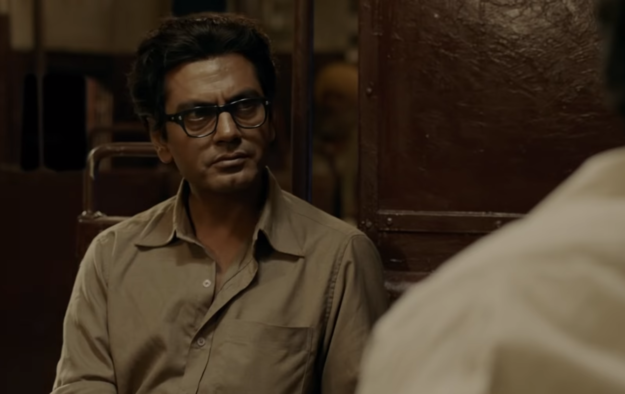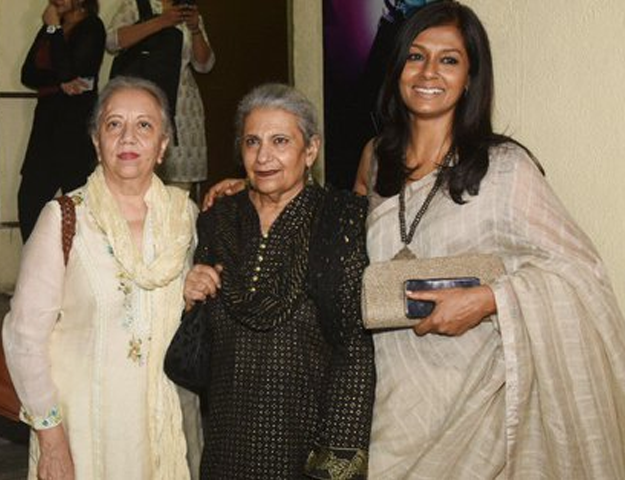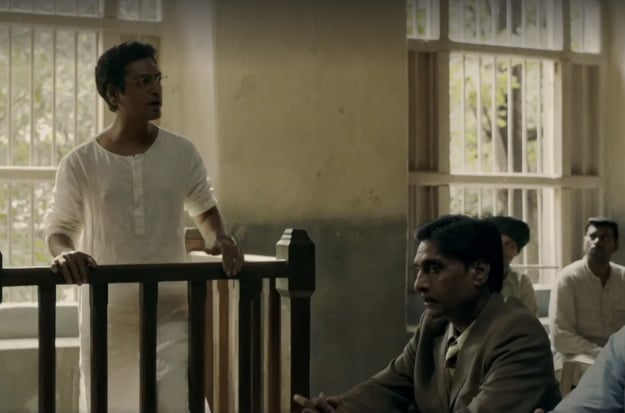Decision on 'Manto' will not be reversed: Censor Board
The film was released worldwide on Netflix on November 30

PHOTO: BOLLYWORM

PHOTO: SCREENGRAB
Federal Minister for Information and Broadcasting, Fawad Chaudhry took notice of Das' disappointment over the ban on Manto in Pakistan. He tweeted back to her, "I am trying to pursue importers to bring this movie to Pakistan. I hope someone will definitely take risk of showing a less commercial film to the viewers."
While the film-maker appreciated the Minister's efforts and thanked him for his response, many artists and writers wrote an open letter to Prime Minister Imran Khan to allow the film to be released. Das was also overwhelmed by this action from the Pakistani citizens. She stated, "Pakistanis defending a film from India shows that we are united in our pursuit of peace and justice."
 PHOTO: HINDUSTAN TIMES
PHOTO: HINDUSTAN TIMESAn official of the Central Board of Film Certification revealed further details while choosing to stay anonymous. "To be honest, there was nothing objectionable in Manto that couldn’t have been salvaged by a few minor edits,” the member told The Express Tribune. The overarching concern of the officials was that the film does not subscribe to the correct version of the Partition.
Whether or not Manto will see the light of day is still to be seen. But the film was released on Netflix on November 30, so the debate over getting it cleared in Pakistan seems unnecessary. Perhaps some pressure from the Information Minister will help the film’s cause? "Well, not really! What has happened has happened. Our issue is that it violates our censorship policy and that's about it. What plays on Netflix is not our headache."
 PHOTO: NEW INDIAN EXPRESS
PHOTO: NEW INDIAN EXPRESSA few days back Das had written an article in Scroll India stating that she wanted Manto to be watched by the Pakistani audience as well.
"We did manage to get one of the best distributors on board due to the popularity of Indian films there and the buzz that Manto had generated. But after much back and forth with them over the past few months, I just got the news that Manto was not passed by their Censor Board. The reasons cited are that 'the film has anti-Partition narrative theme and explicit scenes, which is against the norms of Pakistani society'," wrote Das.
 SCREENGRAB
SCREENGRABThe film-maker added that Pakistan's Censor Board also raised the issue of "explicit scenes", which confused Das as she claims there was no nudity in the film. She said, "It got a U/A certificate in India. Manto’s works were similarly labelled and they faced much neglect and years of obscenity trials. He was finally embraced in Pakistan in his centenary year in 2012 and posthumously conferred the highest civilian award, the Nishan-e-Imtiaz. How can such honour be bestowed upon him when his work is still being considered inappropriate?"
Have something to add to the story? Share in the comments below.



















COMMENTS
Comments are moderated and generally will be posted if they are on-topic and not abusive.
For more information, please see our Comments FAQ